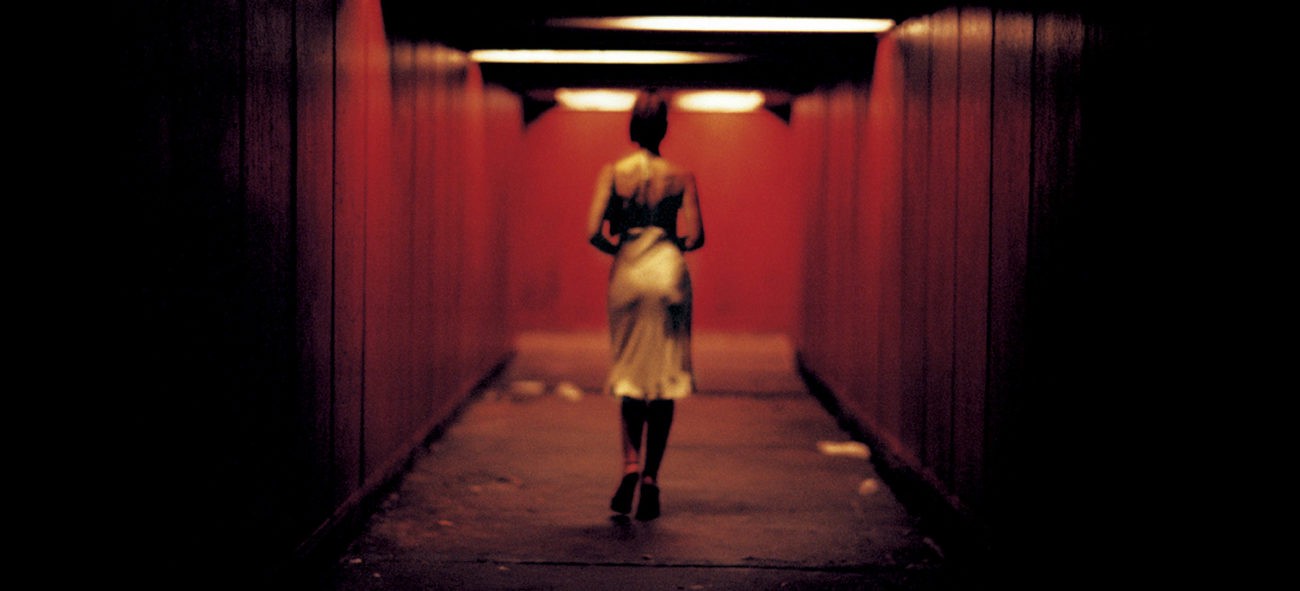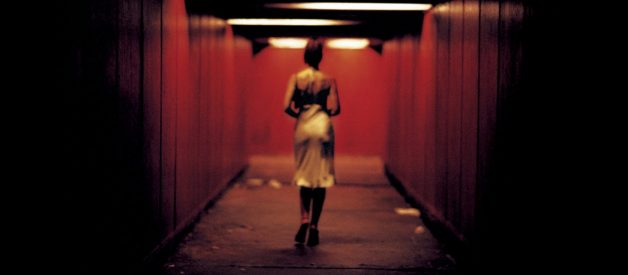
I had an idea of how this article was going to go.
Currently doing the art-house rounds is Gasper No?s Climax, the fifth film from the Argentina-born director. Noe is one of the few working film-makers for which the description ?provocateur? is actually accurate. His films are ultraviolent, bodily graphic nightmares that you have to scrub off afterwards. Orifices are excavated, slurs are spat and cum spurts at the viewer in vivid 3D. Not exactly Netflix and Chill.
Anyway, his second film remains his most controversial: 2002’s Irreversible prompted Cannes walkouts and hissing reviews. The BBFC, the UK?s film certification and censorship body, had to consult a forensic psychologist to check if they should even release it.
The film?s flagship horror is a 9-minute unbroken shot in which Monica Bellucci is anally raped in a underpass and then has her face smashed in.
Noe builds the film in reverse chronology, so we open with Alex?s lover Marcus (Vincent Cassel) on a vengeful macho frenzy, searching for her rapist in a BDSM gay club. After the rape scene we see Alex at a party, getting fed up and leaving on her own. ?I?ll be fine!? she coos on her way out. This is not, as you might have guessed, a subtle movie.
The underpass scene is one of the most notorious in film history. It?s brutal, unflinching, laced in verbal contempt, and mostly improvised.
It?s hard not to think about sexual assault. Right now moral defenders are flocking to the hallways of the U.S. Senate, begging their representatives not to put a probable attempted rapist on the highest court. Tweeting his support is the Pussy-Grabber himself.
On the back of #metoo, women are broadcasting and reliving their trauma online. On my Twitter feed, they are talking about PTSD aftershocks. They scream in their sleep.
Those in power dismiss and downplay. They use phrases like ?boys will be boys?, ?horsing around? and ?smear campaign?.
Are we really going to ruin a good man?s name? For this?
At the heart of this is a bunch of ugly lines of thought, about control and entitlement and women not really, in a fundamental sense, being people. And one of these is that rape ? and the spectrum of sexual assault more generally ? isn?t actually not that big a deal. It?s not violent or disturbing or disqualifying in the way that, say, bullet in the chest is.
I thought about how language skirts around the basic horror of assault, and about how depictions of it on TV and film skirt around the act itself. It?s joked about, or happens off screen, or just before the main plot kicks off. I wondered if there was a connection there. If our culture as a whole cannot get a handle on the violation of rape because we don?t really know, or don?t want to know, what it actually looks or feels like.
I thought of No?s unbroken shot. Thesis: the necessity of exposing the basic, horrible, violent reality of what a rape is. The necessity of looking at the thing.
This is basically No?s defence, as outlined in the Guardian:
The French director, Gaspar No, said the film tackled the hideous nature of rape and if Britain could not stomach a scene exposing sexual violence, he would rather the film was not shown here.
He said: ?If Britain cuts it, the film won?t be released here. I can?t understand how a country like England would ask for cuts when Cannes, the most bourgeois film festival in the world, showed it. You can?t cut the film because of [its long takes]. It would become obvious to an audience that there had been cuts.
?US movies are much more damaging than this one, in their promotion of violence, power and weapons. Rape happens in life. Why can?t it be shown on screen so people can have a clearer vision of it? On a moral level you can?t object.?
I still think that?s true. Rape happens. Art should deal with that.
But there?s the question of ?how? it?s deal with, in story and character and tone.
Rape happens, sure, but most rape does not happen like it does to Alex.
The details of her attack ? walking home alone at night, the urban setting, a hateful pimp with a blade ? are more or less the stereotype of what rape looks like, the sort of hoary image of predatory city strangers that helps newspaper columnists victim-blame.
Most sexual assault is committed by someone the victim knows, a friend, boss, family member or spouse. Embedded in everyday structures, domestic and humiliating. We know this now.
There are complications with the film. Agency belongs to men: it is on them to right the wrong themselves while Alex lies in the stretcher. And the second half of the film fails to flesh out the crime with context and extra emotional weight, wasting time with pretentious dialogue and an cheap revelation about Alex?s pregnancy.
Still. Part of what makes the rape scene so alarming is how suddenly it is sprung upon Alex, her world cracked in half on a predator?s turn.
The spontaneity is a confirmation of basic unsafeness.
I?m not sure what conclusion to reach. I am a man with an easy life and I?m sitting here trying to decide if a particular representation of rape is ?accurate? or ?helpful? as if I have the first clue about the subject.
I think how our culture conceptualises rape is broken and I think our art plays a role there. I think mainstream movies and TV are far too intellectually casual with violence, and sexual violence is included in that.
I think it?s used to give art ?spice? and ?seriousness?. I think it?s used.
I also think it?s not the responsibility of victims to vomit up their pain so the rest of us can Learn Lessons.
Maybe basic disgust is the most appropriate response. Maybe the sickness of No?s vision is our own sickness, reflected back in art-house, fun-house excess.


